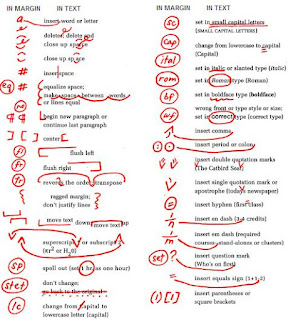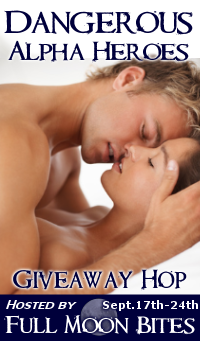CHAPTER
FIVE
"What's
happening?" Katarina joined the crowd collecting in the courtyard.
When
she and her parents had awakened, they had heard the commotion and hadn't even
bothered to dress in their regular clothes before venturing out to see what was
going on, still dressed in their sleeping tunics. Kat pulled her robe more
securely around her.
"King
Bain sent messengers."
She
spun around at the sound of Nicolas's voice, and her heart fluttered. She
hadn't realized he was there.
"Oh!
Nicolas. Hi."
He
smiled at her, his dark, shoulder-length hair falling around his face in a way
that made her want to reach up and tuck it behind his ears.
“Aren’t
you a bit underdressed to meet the king’s liaisons?” His dark eyes reflected
the flickering of the torches surrounding the courtyard, illuminating it.
Kat
looked down at her informal attire and self-consciously pulled her robes more
securely around her.
Nicolas
chuckled. “You look presentable, Kat. I was only teasing.”
With
an awkward giggle, Kat met his gaze. “Oh, I see.”
He
stared at her, that humored grin on his beautiful lips, his eyes ranging her face.
“I saw you dancing last evening,” he said. “With the child, Micah.”
Nicolas
had been watching her? Heat filled her cheeks at the thought. “Yes. I’m friends
with his mother. Why?”
With
a shake of his head, Nicolas glanced down then up. “No reason. You just caught
my eye is all.”
“I
did?” The question had come out before she could stop herself from speaking.
“Is
that so surprising?” His congenial features softened.
“I
just –” Kat pressed her fingertips against the base of her neck, flustered and
unable to form an intelligent response. She had caught the eye of handsome
Nicolas, a male she had secretly fawned over for months.
He
took a small step forward. “What I think is so surprising that it took me so
long to notice you, Katarina. How have I missed such a beauty as you when
you’ve been here for so long?”
Dear
oh dear. Katarina thought she might faint from his courting words.
With
a blush, she looked away shyly. “Nicolas, you flatter me.”
He
took another step closer. “And you captivate me.”
Could
he be any more romantic? For so long, all she had wanted was to capture his
attention, and now she had succeeded.
Nicolas
was about to speak again when a restless murmur within the crowd rose behind
her. She turned and saw Yaris approaching, and he had 4 knights and a regal
male dressed in velvet and satin robes with him. The way the man in the robes
talked and gestured with Yaris made her think they knew each other and that
whatever needed to be said was not good news.
Kat
threw a worried glance toward Nicolas as he stepped up beside her and
tentatively took her hand. She threaded his fingers through his, her body
warming at his touch as he flashed her a reassuring smile.
“I
wonder what’s going on,” she said.
Nicolas
shook his head. “I don’t know, but it looks to be that we shall find out soon.”
Her
heart raced, but she couldn’t tell if it was because of Nicolas’s newfound
admiration for her or from the foreboding look on Yaris’s face. Or maybe it was
Isabelle’s tear-streaked face as she followed behind her mate, attempting to
stifle her sorrow as their blood servant, Sylvia, comforted her.
Kat
couldn’t see little Micah, but she assumed he was with them.
Yaris
stepped up onto the platform in the front of the courtyard where only last
night the quartet had played. What a difference a day made. Last night, they
had all celebrated the mating of two of their own, but tonight the mood was
anything but celebratory. Worry, concern, and a sense of dread hung over the
crowd. Everyone was expecting the worst, which could only mean one thing.
Her
hand tightened around Nicolas’s.
“May
I have everyone’s attention?” Yaris didn’t need to ask. Everyone had fallen
silent and turned their eyes toward him the moment he had stepped before them.
“A
liaison to King Bain has been sent to us with an announcement that requires our
immediate action. He and I have already spoken, and I have been fully briefed
on what has happened and what is to come. Now I will let him speak on behalf of
the king.” Yaris stepped aside and gestured with a slight bow toward the male
in the robes, who walked forward.
“People
of Yaris’s lordship, I have come with grave news. The war between the vampires
and the drecks has reignited after nearly two decades of peace.”
Hushed
gasps and a few stifled sobs rose from the collection of villagers.
The
liaison continued, “As you may have surmised, King Bain has called back into
service those who have fought before, effective immediately. They are to leave
for the royal capital within seven days. Furthermore, all young who are able
are to return with us immediately to begin training for the guard.”
A
near uproar rose from the crowd at the thought of their young being taken away,
and Kat dashed a glance toward Isabelle, who broke down in tears almost
immediately. She was losing her son. Little Micah was to be taken away. And
Yaris would have to leave, too. He and his brother, Rory, who stood near the
front of the crowd, had been powerful warriors in decades past.
What
would happen to Isabelle? What would happen to all of them? Kat had yet to go
through her change into adulthood the last time there had been war between the
vampires and drecks. What had sparked this latest uprising, and how would they
protect themselves in the village if all their males were called away?
As
if reading her mind, the liaison said, “All adult males who have not taken up
arms in prior war time will remain in the village with two of these knights.”
He gestured to the side toward his human companions. “They will train you and stay
here as protection in case of attack.”
“What
are the chances of that happening?” called out one of the villagers.
The
liaison raised his hands, palms out, as if to stave off their worries. “The war
has erupted far from here. You have no need to worry at this time.”
“Then
why train us?”
“As
a precaution.” The liaison raised his hands. “That is all. Ready your young for
we depart at sunrise.”
The
liaison turned and march away amid a cacophony of questions and cries for more
information. Yaris followed, as did Rory.
Kat
watched and caught a glimpse of little Micah, caught up in Isabelle’s arms,
tears flooding his cheeks. It was too much for Kat to take. She finally broke
down, sobbing heavily as Nicolas pulled her into his embrace.
“Sshh.”
He stroked his palm down her back. “It will be okay.”
But
Kat had a feeling it wouldn’t be. How could it be okay when families were being
torn apart and war had broken out once more? Couldn’t the drecks just accept
what Fate had dealt them? They were the inferior race. Drecks could not win
against a vampire army, but they could cause terrible grief and pain for the
survivors of those they managed to kill. Their greed knew no bounds.
“I
hate them!” She gripped Nicolas’s tunic, her tears dampening the material
against his shoulder.
“Who?”
“The
drecks,” she wailed.
“We
all do, Kat.” Nicolas pulled her closer, trying to comfort her.
Drecks
wanted nothing more than to destroy all the vampires so they could turn their
pitiful hatred toward humans and systematically transform them into slaves.
Humans couldn’t compete with the strength and poisonous venom of the drecks. If
not for the vampires, who served as protectors of the human race, mankind would
already be held in servitude. That was something vampires would never allow to
happen on their watch.
“Please
tell me you never fought before,” she said, looking up into Nicolas’s dark
eyes. They were so dark, they were almost black.
He
shook his head. “I was too young in the last war. I missed it by a couple of
years.”
For
the first time since the liaison began talking, Kat let out a grateful sigh of
relief. At least Nicolas would be staying here with her. Now that she had
finally caught his fancy, she didn’t want to lose him. “Thank the heavens.” She
closed her eyes and rested her cheeks against his shoulder.
Caresses
soft and delicate as a feather brushed her face, and Nicolas pressed his lips
against her forehead then bowed his head against hers. “Yes,” he said quietly
against her ear. “I would not have wanted to leave now that I just found you,
Katarina.”
His
comforting words were welcoming, but she knew she had to tear herself away. She
couldn’t let little Micah leave without saying goodbye.
NOTE: To prevent me from having to put an adult filter on my blog, I will be posting upcoming chapters of a more adult nature here: http://www.facebook.com/MicahBlackAKM - this is my fan page for the character, Micah Black. I will be posting the chapters in the notes on that page, as well, but will only post adult content chapters there. I will provide a link here when such a chapter gets posted. Thank you.













